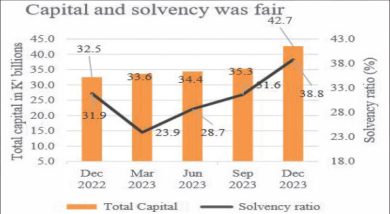JB’s visit and the Kalahari pula
So, we finally got a loan from the desert land of Kalahari to help us procure some food, based on some media reports. We will repay it at some stage, but one can also see the ironic 150 cows, allegedly given to our Head of State. Sounds like killing two birds with no stone at all.
On a personal note, I freak out at the idea of my friend Chimusoro from Gaborone and his belief that a strong pula meant his country is very rich. It may confirm the strong currency fallacy, while ignoring the fair mining deals the Kalahari government made plus a strong corruption drive, as real deals. I remember schooling him on currencies during our mini-Sadc summits, in some building, in the City of Churches in Australia, as we wondered why not so holy drinks, were viciously calloused .
I always used Japan and its weak yen, as a good example to drive home the argument, a strong pula did not mean his country was better off. It was simply nothing to brag about and I went further to throw a punch on the relatively high HIV rates compared to the God-loving country. The reaction was whether I had done such a test and the summits ended on that note. But realistically, Her Excellency’s trip proved fruitful and there is more we can learn from a policy perspective. On her Facebook posting, she did say mining was one area Malawi can learn more from. All I can say, such a loan was possible because their mining deals have been made in fairness.
The World Bank has periodically produced an index on the ease of doing business. A number of factors are usually considered including corruption, red tape, costs of utilities and so forth. Botswana ranks favourably high across the continent. It also has a robust and efficient financial system. Similarly, the Berlin-based Transparency International considers it one of the least corrupt country in Africa. Their Head of State is one sober fella in all aspects of the word, including his practical fight against vices that siphon public funds, except when he interferes with the rights of thousands Tswana men to go home early.
How one judges the parallels to our country is a matter of opinion, but we can agree that our fight against the vice remains lip service. Billions of kwacha have continued to go down the drain, and to some extent one wonders whether they have been any benefits from a massive debt relief of the mid 2000’s. Our colleagues to have a transparent government can even be satirised in the “makhirikhiri” dance.
Botswana has enjoyed considerable budget surpluses, over the years, and can afford to lend us some quid, not through the back room sham of the $20 million that Uncle Bob repaid through gasoline. I can see my friend Chimusoro asking me questions, on whether we have minerals of any kind to generate the much-needed foreign exchange, whose appetite surpasses that of an alcoholic for their favourite pint. We are probably at a critical stage as we endeavour to develop our mining industry and properly benefit from it.
Our colleagues in the land of Kalahari, negotiate reasonable deals on their mining resources to the extent that citizens through government own a substantial stake in owning natural resources. It’s all been transparent, and not shrouded in some secrecy and it’s a route we can take as well in the face of dwindling revenues. The tobacco story has been told many times. It’s not nationalisation, but having a fair share in how natural resource benefits trickle to communities that will bear future costs of associated environmental crimes. If combined, with a credible system of transparency on how revenues are used, I reckon it can translate into extra resources required to invest in education, science, technology and infrastructure.
Are we then surprised that the Kalahari guys can spare some change and offer us a loan? Well, their budget surplus over the years is a result of ensuring a fair share of their mining resources plus a tough crack on all corrupt elements. As we look towards becoming a mining nation, there is a lot we can learn, otherwise I would rather our minerals stay in the ground instead of filling pockets of crafty oligarchs and their surrogates.
On my next visit to Gaborone, I can expect a very long and tough lecture from Chimusoro. He seems to have perfected his common sense understanding of public finance and governance including the strong currency fallacy. I can’t demean his thinking, I remain on the borrowing side.




